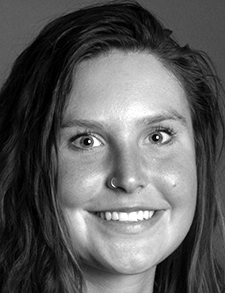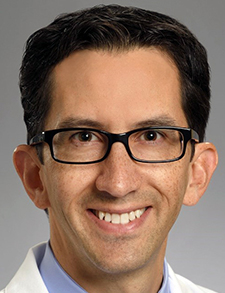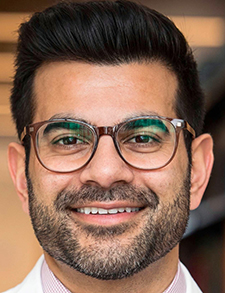Secrets of Satisfied EHR Users
 A report released earlier this year by KLAS Research identified more than 3,000 “highly satisfied” users of their hospital’s electronic health record (EHR), which has also been shown to be a contributor to job stress, dissatisfaction, and burnout for some clinicians.1-3 The report that teased out these highly satisfied clinicians, using survey data from December 2021 to December 2022 among 400,000 end users of the EHR in different countries, also highlighted several key traits distinguishing satisfied EHR users from those who are not.
A report released earlier this year by KLAS Research identified more than 3,000 “highly satisfied” users of their hospital’s electronic health record (EHR), which has also been shown to be a contributor to job stress, dissatisfaction, and burnout for some clinicians.1-3 The report that teased out these highly satisfied clinicians, using survey data from December 2021 to December 2022 among 400,000 end users of the EHR in different countries, also highlighted several key traits distinguishing satisfied EHR users from those who are not.

Ms. Beyer
“We measured physicians, advanced practice clinicians, nurses, and allied health professionals, gathering their responses to 11 core metrics of our Net EHR Experience Score,” said Anna Beyer, a Salt Lake City-based market analyst at KLAS—which works with practitioner members of the Arch Collaborative committed to improving their EHR experience through surveys and benchmarking.
Highly satisfied users agreed or strongly agreed that the EHR enables them to deliver high-quality care and makes them as efficient as possible, she said. A previous KLAS report found that satisfaction with the EHR is also important for job retention. These highly satisfied users may be outliers from the mass of working hospitalists, but they’ve learned lessons that could help point the field as a whole to a more efficient and productive relationship with this ubiquitous hospital tool while improving their satisfaction with their EHR.
The most satisfied users pointed to personal accountability: taking ownership of their own EHR journey and learning the system to the best of their ability; the use of personalization tools to adapt the tool to their personal needs and practice style; and longer experience with the system combined with more ongoing training and education. They also shared the belief that their organization had implemented the EHR well; that the initial training had prepared them well; and that they trusted the organization for how it supports them.
We use it, and we want it better

Dr. Vazquez
John Vazquez, MD, (@JohnVaz06707022) a hospitalist and director for the division of hospital medicine at Emory Healthcare in Atlanta, says he’s not aware of many colleagues who could actually say they love their EHR. “I would say we think it’s necessary, and we think it’s better and safer overall than what we used to have to do with paper charts. But would I say I love it? It’s more like I use it, and I want it to be better.”
Last October, Emory converted the health system to Epic from a previous EHR software vendor. “Everyone knew it was coming. We advertised that this is likely to be painful for a year. But we put in a ton of work to try to have a good product when it opened. Some issues were brought to the top that we needed to change quickly,” Dr. Vazquez said.
One solution to EHR frustrations is to make sure someone is really advocating for your group, your doctors, and your nurses, he said. “I think every hospital has an IT [information technology] team and usually has a chief information officer (CIO), but what I find is that they get told things by the software vendor, like ‘We can’t do that,’ or ‘Oh, well, this is just how we do things,’” he said.
“In our case, we formed a hospital medicine, division-specific, IT group that has the phone number of a hospital administrator who is going to respond, and that connects directly through the CIO and CMIO [chief medical information officer] to our advocates at Epic to report when we’re having trouble with a major safety issue, for example, losing patients off of team lists in the chart because the information was entered in the ‘wrong’ order,” he said.
Sometimes tech people instruct physicians and nurses: “When you see something that’s not working, just click on this button and insert your complaint and concern, and that will be addressed,’” Dr. Vazquez said. But clinicians typically don’t take the time to do that, because they’re too busy. So Emory had to find multiple pathways to make it easier for people to give those little examples of what could be done better and how to reorganize it.
“What we did here was to get some of our tech guys and the EHR guys from Epic to just follow our doctors around (to see what isn’t working). We know that if you sit at the lunch table with a doctor, you’re going to get a lot of feedback. But if you tell them, ‘Call me when there’s a problem,’ well unless a fire has broken out, you’re not going to get that phone call. I say to our doctors: just send me a text that says ‘call me,’ and I will get back to them so they can tell me about it.”
Fanfare and promises
The EHR was rolled out with much fanfare and promise—for all the things it could do or facilitate or enhance to make medical care better, easier, safer, more efficient, and evidence-based.3 The promise was that it would serve the doctor with timely, essential alerts and easy access to vast amounts of data that could enhance clinical decision making. However, limitations to the EHR from the vantage point of physicians who use it have been widely described.
A 2017 survey of hospitalists conducted by hospitalist Zuzanna Czernik, MD, and colleagues at Colorado University in Denver concluded that interventions to improve the EHR user interface could help mitigate hospitalist burnout.4 Surveyed physicians reported that their work-life balance was better with EHRs as opposed to paper, but the vast majority (85%) said they felt burned out often/very often or sometimes. The least burned-out physicians were more likely to state that the EHR improved their work/life balance, and those who said the EHR improved their work/life balance were more likely to report that it also improved their job satisfaction.

Dr. Grommesh
Bethany Grommesh, MD, a hospitalist with Park Nicollet Methodist Hospital in Minneapolis, also wears the title of “Epic Lead” for her department, for which she gets 35% protected time to work on IT issues. “I have physician ‘build’ status in Epic, but I don’t do any actual physical build. I basically know how everything works, but the IT experts are putting this together. I’m kind of a translator, explaining the clinical process and how it needs to work for the end user so it makes sense,” she said.
“I think you need to put pressure on your system to add resources to make it as efficient as possible,” Dr. Grommesh said. “Epic has a lot of different ways to do things, and to create efficiencies, for example, good order sets with preselects that are directing you toward the appropriate care, and smart phrases that can give you time and efficiency and help you with your documentation needs.” Or a well-crafted best-practice alert that pops up at the time when it’s really needed. “You can also do a preference list for things like problems (diagnoses) that are most commonly used, so people don’t have to go hunting for them.”
Dr. Grommesh said the biggest secret is the “build” of the software at the system level, the code that is ready to access by the user. “If you have a nice enough build, and it’s intuitive, you may not even need to do much education. People just go, ‘Oh, this is better.’ And that’s what I strive for—just to make stuff easier, where it’s obvious that it’s going to be better for the user.”
Manual filters and favorites

Dr. Patel
“The EHR is a big part of how we do everything now in the hospital,” said Sajan Patel, MD, a hospitalist at the University of California, San Francisco and director of quality improvement for its division of hospital medicine. “I’ve done a lot of work to personalize and make our EHR work for me, or at least minimize some of the pain points, shall I say.”
The challenge is how to optimize the EHR and each doctor’s personal version of it to be more efficient, to make it work for them, and to get the data they need as quickly as possible. “I will say our residents are especially good at this because they’re just exceptionally savvy with the technology.”
Dr. Patel offers the example of the manual filter in Epic. “That means when you hover over a note in the chart, you can now choose the manual filter, which will show you what the person who did the note wrote manually. Why is that helpful? Well, when the patient’s been in the hospital a long time, and you’re getting recommendations from a consultant who may not be making that many changes, you’re just looking for actionable insights—what is new today? What is the main recommendation?” he explained.
“I learned recently that Epic upgraded to allow us to not just copy other people’s order sets, but you can also ‘favorite’ someone else’s order sets. So if we were working together, you could say, ‘I’m going to favorite Sajan’s order sets,’ and you just have to click on my name and you’ll see my order set list and choose which ones you want.”
At UCSF, hospitalists can submit suggested enhancements or changes to the EHR, which then go through a governance committee that determines whether to follow through with them. Dr. Patel offered the example of a medication called sodium polystyrene sulfonate, used to reduce potassium in patients with dangerously high levels. It’s usually called Kayexalate by doctors, but you couldn’t order it by that name on Epic. “I submitted a ticket to our Apex Clinical Content Committee, which is the name for UCSF’s Epic (EHR) governance committee asking them to change Epic to make it possible to order it by the name Kayexalate.”
He keeps a running list of all the things that are bothering him about the EHR. “I’m obviously not trying to figure out everything on that list, but if I remember something, I’ll put it on the list and later I’ll come back to it.” Things that can save seconds per patient add up to minutes per day, which can add up to hours per week, even if some of these things take a little time to set up in the first place, he said.
“I am also our director of quality improvement, so I think of things like these in terms of quality and safety—always trying to improve them, thinking lean, how to reduce waste. So to me, enhancements to Epic can also have safety implications.”
Dr. Patel recommended getting the hospitalist group together to share their own efficiency practice tips. “You can learn a lot from other people’s tricks and hacks,” he said. “Write down your different sorts of little tasks, shortcuts, tips, and tricks, and then regularly share them with your colleagues.”
Emerging applications

Dr. Li
Ron Li, MD, a hospitalist and clinical associate professor of medicine at Stanford School of Medicine in Stanford, Calif., as well as the medical informatics director for digital health at Stanford Health Care in Stanford, Calif., sees opportunities for hospitalists to get involved in enhancing the EHR in a couple of ways. One is to offer feedback on how things should be designed better in the EHR. The other way is to get involved in governance—the whole process of analyzing tradeoffs, and prioritizing what needs to be fixed.
“There are tons of opportunities to play a role in the design and enhancement of our medical tools, including the EHR. We don’t have to be engineers. But we should have some expertise in the technology,” he said. “For hospitalists, the EHR is part of the equipment we use to take care of our patients, so we should know how it works.”
Dr. Li founded and directs the Stanford Emerging Applications Lab (SEAL), at which Stanford clinicians can propose ideas for novel digital products and have them prototyped and tested for care delivery at Stanford. “Our thesis: Physicians should be the builders. We have plenty of faculty and physicians who are creative and motivated to build. But we’re also in the hospital, with opportunities to safely test those ideas (in real-world settings). We can take an idea from a clinician and turn it into an app within a couple of weeks and play around with all sorts of interfaces.”
Potentially, they might even go on to start their own software-based company, integrated with the EHR, to market the solution they thought of.
A new career opportunity
It may not be very useful to the harried frontline hospitalist to know, as the studies have shown, that those who believe the EHR makes their work more efficient are likely to also say it improves their job satisfaction and work-life balance. But satisfaction is also reported for those who are actively engaged in improving the EHR for their hospital. Is that the pathway to the highly satisfied hospitalist?
“Some hospitalists get paid to do the work of improving the EHR’s functionality and convenience,” Dr. Vazquez said. “I have an administrative role and so I consider it part of my job. But a lot of our local site hospitalists don’t get protected time to work on improving the EHR. They just do it because they want to have better patient care, and to have their days be more efficient,” he said.
Dr. Vazquez has noted that when someone is into helping and comes up with great ideas, they can end up on the chief medical information officer’s shortlist for leadership roles or even get protected time for information technology work. It has to be more than just showing up at the department’s information technology meetings, it means really taking an active role, he said. But suddenly that hospitalist has a new leadership position, which may signal a new career direction.
“With a little mentoring, and knowing who else to connect with and how to be seen, since there is such a hunger for good leadership everywhere, now they have a new job title. Or they’re presenting at the SHM annual meeting about how they arranged something in the computer system that improved patient care.”
Larry Beresford is an Oakland, Calif.-based freelance medical journalist, a specialist in hospice and palliative care, and a long-time contributor to The Hospitalist.
References
- Wisner A. The successful user’s guide to high EHR satisfaction. KLAS Research website. https://klasresearch.com/archcollaborative/report/successful-user-s-guide-to-high-ehr-satisfaction/475#:~:text=In%20the%20Arch%20Collaborative%20data,them%20as%20efficient%20as%20possible. Published March 24, 2023. Accessed September 28, 2023.
- Tai-Seale M, et al. Association of physician burnout with perceived EHR work stress and potentially actionable factors. J Am Med Inform Assoc. 2023:ocad136. doi: 10.1093/jamia/ocad136.
- Schulte F. Why the promise of electronic health records has gone unfulfilled. National Public Radio website. https://www.npr.org/sections/health-shots/2019/03/18/704475396/why-the-promise-of-electronic-health-records-has-gone-unfulfilled. Published March 18, 2019. Accessed September 28, 2023.
- Czernik Z, Yu A, et al. Hospitalist perceptions of electronic health records: A multi-site survey. J Gen Intern Med. 2022;37(1):269-71.